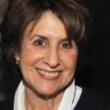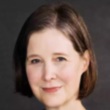The Beauty of Dusk: On Vision Lost and Found
(Libby/OverDrive eBook, Kindle)
Available Platforms
Description
More Details
Similar Titles From NoveList
Similar Authors From NoveList
Published Reviews
Booklist Review
When New York Times columnist Bruni awakes one morning with the vision in one of his eyes blurred, his entire world is turned upside down. Bruni, a man who relies on his sight as a reader and writer, learns that a stroke has damaged his optic nerve and that his other eye may also be in danger. It's a point in his life when he has to make the decision to wallow in fear or explore his options, and, thankfully, Bruni throws himself into an investigation. A friend's comment, "When one eye closes, another opens," sums up Bruni's journey. As he visits specialists and enlists in experimental programs, he also tracks down and interviews people who have refused to let their physical limitations limit their dreams. Bruni is inspired by the optimism of a college friend with Parkinson's disease. He talks with a blind comedian with a successful stand-up routine, a blind politician who is becoming a priest, and a blind swimmer who has set records. Everywhere he perceives gratitude, optimism, hope, and courage in his interviewees, leading to a shift within himself to compassion and appreciation. The result is a book about vision loss that becomes testimony to human courage, a moving memoir that offers perspective, comfort, and hope.
Publisher's Weekly Review
New York Times columnist Bruni (Where You Go Is Not Who You'll Be) imparts in this generous memoir the wisdom he learned after he began to lose his eyesight. One morning in October 2017, Bruni woke up with blurry vision, only to later discover that a stroke had destroyed the optic nerve in one of his eyes, leaving the other eye vulnerable to a similar fate and Bruni at risk of total blindness. "t made me tremble, tested me and forced me to see in a new way," he writes. Coming to terms with his new reality, Bruni delves into the emotional, psychological, and social tolls of losing his eyesight, while musing on the experience of aging, connecting his story to the way Joe Biden's age was discussed when he was running for president. Despite being widely considered as past his "prime," Bruni argues that the septuagenarian candidate "defied the naysayers": "what Biden lacked in zip, he made up for in zen." It's a compassionate take on growing older that, when combined with sanguine insights on living with compromised vision, illustrates Bruni's knack for writing about the unpredictable beauty of the human condition. Smartly mixing memoir and cultural criticism, this movingly speaks to an entire generation. Agent: Amanda Urban, ICM. (Mar.)
Kirkus Book Review
How losing sight in one eye launched Bruni into an uplifting exploration of human potential. Bruni, longtime journalist and New York Times restaurant reviewer and op-ed columnist, now a professor at Duke, warns readers to "brace yourself for a boatload of clichés and jump ship if they're going to bother you." As he notes, greener grass, silver linings, and making lemonade from lemons are just "down-market analogues of insights," many of which he experienced after a stroke in his sleep left him functionally half blind. Some of his account of how he dealt with this infirmity is intriguing, and some feels like sentimental, self-help happy talk gone off the deep end (a problem that characterized some sections of his previous memoir, Born Round). In one chapter, Bruni uses the suicides of his much-envied colleague Anthony Bourdain (Bruni's discussion of Bourdain is excellent) and designer Kate Spade to advance his theory of "sandwich boards": We have no idea what other people are going through; if only we wore signs listing our hidden troubles. Being alert to those sandwich boards and being able to "recast limits" and "reconceptualize loss" are "the overlapping three pillars of perspective," which is the ultimate saving grace. During the writing process, the author spent time documenting "starfish," people who discover new abilities after losing others, like a starfish grows back a new arm after losing one--e.g., deaf composers and blind photographers. The author also discovered a little starfish in himself, locating a dropped phone in a thicket in pitch-dark Central Park. Bruni also explores some of the positive sides of aging: Look at Nancy Pelosi and Ruth Bader Ginsburg! Joe Biden, whom Bruni attacked during the campaign as too old, is now revealed as wiser and less awkwardly garrulous. An uneven but poignant, often wise look at how nearly everything bad that happens to us can actually be good. So cheer up. Copyright (c) Kirkus Reviews, used with permission.
Booklist Reviews
*Starred Review* When New York Times columnist Bruni awakes one morning with the vision in one of his eyes blurred, his entire world is turned upside down. Bruni, a man who relies on his sight as a reader and writer, learns that a stroke has damaged his optic nerve and that his other eye may also be in danger. It's a point in his life when he has to make the decision to wallow in fear or explore his options, and, thankfully, Bruni throws himself into an investigation. A friend's comment, "When one eye closes, another opens," sums up Bruni's journey. As he visits specialists and enlists in experimental programs, he also tracks down and interviews people who have refused to let their physical limitations limit their dreams. Bruni is inspired by the optimism of a college friend with Parkinson's disease. He talks with a blind comedian with a successful stand-up routine, a blind politician who is becoming a priest, and a blind swimmer who has set records. Everywhere he perceives gratitude, optimism, hope, and courage in his interviewees, leading to a shift within himself to compassion and appreciation. The result is a book about vision loss that becomes testimony to human courage, a moving memoir that offers perspective, comfort, and hope. Copyright 2022 Booklist Reviews.
LJ Express Reviews
Bruni, an author (Born Round) and New York Times columnist, recounts his experience of waking one morning with vision loss in his right eye. Arriving at a diagnosis for his vision loss took persistence and patience, as Bruni documents here; ultimately it is revealed that he has the condition NAION, which restricts blood flow to the optic nerve. A neuro-ophthalmologist ascertained that he'd had a stroke, which preceded the sudden vision loss. Bruni was forced to engage in daily management of his condition, during which his long-term relationship cratered. Navigating his new reality alone, Bruni describes seeking out other people who have had similar experiences losing one or more of their senses. These include Juan José, a Mexican diplomat rendered blind in his teens from retinitis pigmentosa; instead of his disability hindering his career or life ambitions, he recalibrated, Bruni writes. This is a common theme in Bruni's other interviews in this book and a takeaway that sustains him. He cites Sanjay Gupta's assertion in Keep Sharp, that the human brain is elastic and adaptive throughout its life, always creating new brain cells. VERDICT Although it can sometimes read more like a long column than a memoir, Bruni's optimistic book will be a balm to many. Recommended.—Barrie Olmstead
Copyright 2022 LJExpress.Publishers Weekly Reviews
New York Times columnist Bruni (Where You Go Is Not Who You'll Be) imparts in this generous memoir the wisdom he learned after he began to lose his eyesight. One morning in October 2017, Bruni woke up with blurry vision, only to later discover that a stroke had destroyed the optic nerve in one of his eyes, leaving the other eye vulnerable to a similar fate and Bruni at risk of total blindness. "t made me tremble, tested me and forced me to see in a new way," he writes. Coming to terms with his new reality, Bruni delves into the emotional, psychological, and social tolls of losing his eyesight, while musing on the experience of aging, connecting his story to the way Joe Biden's age was discussed when he was running for president. Despite being widely considered as past his "prime," Bruni argues that the septuagenarian candidate "defied the naysayers": "what Biden lacked in zip, he made up for in zen." It's a compassionate take on growing older that, when combined with sanguine insights on living with compromised vision, illustrates Bruni's knack for writing about the unpredictable beauty of the human condition. Smartly mixing memoir and cultural criticism, this movingly speaks to an entire generation. Agent: Amanda Urban, ICM. (Mar.)
Copyright 2021 Publishers Weekly.Reviews from GoodReads
Citations
Bruni, F. (2022). The Beauty of Dusk: On Vision Lost and Found . Avid Reader Press / Simon & Schuster.
Chicago / Turabian - Author Date Citation, 17th Edition (style guide)Bruni, Frank. 2022. The Beauty of Dusk: On Vision Lost and Found. Avid Reader Press / Simon & Schuster.
Chicago / Turabian - Humanities (Notes and Bibliography) Citation, 17th Edition (style guide)Bruni, Frank. The Beauty of Dusk: On Vision Lost and Found Avid Reader Press / Simon & Schuster, 2022.
Harvard Citation (style guide)Bruni, F. (2022). The beauty of dusk: on vision lost and found. Avid Reader Press / Simon & Schuster.
MLA Citation, 9th Edition (style guide)Bruni, Frank. The Beauty of Dusk: On Vision Lost and Found Avid Reader Press / Simon & Schuster, 2022.
Copy Details
| Collection | Owned | Available | Number of Holds |
|---|---|---|---|
| Libby | 1 | 0 | 1 |































